 W
WCannabis rights or marijuana rights are individual civil and human rights that vary by jurisdiction. The rights of people who consume cannabis include the right to be free from employment discrimination and housing discrimination.
 W
WBrenda Cherry, is an American Civil Rights Activist from Paris, Texas.
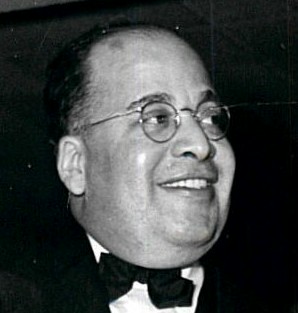 W
WJohn Preston Davis was an American journalist, lawyer and activist intellectual, who became prominent for his work with the Joint Committee on National Recovery (JCNR). In 1935 he co-founded the National Negro Congress, an organization dedicated to the advancement of African Americans during the Great Depression.
 W
WLeonidas Carstarphen Dyer was an American politician, reformer, civil rights activist, and military officer who served 11 terms in the U.S. Congress as a Republican Representative from Missouri from 1911 to 1933. In 1898, enrolling in the U.S. Army as a private, Dyer served notably in the Spanish–American War; and was promoted to colonel at the war's end.
 W
WThe Equality Amendment is a proposed Amendment to the U.S. Constitution by legal scholars Kimberlé Crenshaw and Catharine MacKinnon. It was first proposed in December 2019 in the Yale Law Journal. This proposal is an updated version of the Equal Rights Amendment written by Alice Paul from the National Women's Party, which was first proposed in 1923 and has not been ratified. This is different from the 2021 Equality Act, which has been proposed in Congress to prohibit discrimination based on biological sex, gender identity or sexual orientation.
 W
W"Everything which is not forbidden is allowed" is a legal maxim. It is the concept that any action can be taken by an individual or a body unless there is a law against it. It is also known in some situations as the "general power of competence" whereby the body or person being regulated is acknowledged to have competent judgement of their scope of action.
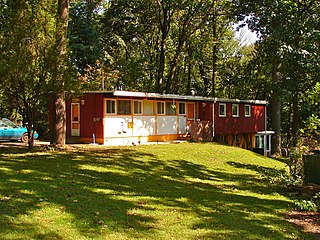 W
WGreenbelt Knoll is a residential development in the Northeast section of Philadelphia, Pennsylvania. Planned and built from 1952 to 1957, it is notable as the first planned racially integrated development in Philadelphia and among the first in the United States.
 W
WPaul Samuel Henderson was an African-American photojournalist for the Baltimore Afro-American newspaper from 1929 through circa 1960. He became well known for taking pictures of large groups and distant objects atop a ladder he carried. Henderson primarily photographed people, including church groups, politicians, graduations, local college and university groups, weddings, events during the Civil Rights Movement, and more. He was a member of the National Association for the Advancement of Colored People, a vestryman at St. James Church, charter member of the Druid Hill Avenue Neighborhood Club, assistant treasurer of a local Frontiers International club, and supported The Salvation Army.
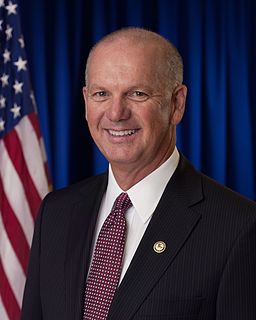 W
WDavid J. Hickton is the director and founder of the University of Pittsburgh Institute for Cyber Law, Policy and Security. Prior to that, he was the 57th U.S. Attorney for the Western District of Pennsylvania. He resigned following the election of President Donald Trump and began his position at Pitt in January 2017. While a U.S. Attorney, Hickton brought several indictments for cybertheft and hacking. He also played a key role in combating the opioid abuse epidemic in Western Pennsylvania. Prior to becoming U.S. Attorney, Hickton engaged in the private practice of law, specifically in the areas of transportation, litigation, commercial and white collar crime.
 W
WHouston's first sit-in was held Friday, March 4, 1960 at the Weingarten's grocery store lunch counter located at 4110 Almeda Road in Houston, Texas. This sit-in was a nonviolent, direct action protest led by more than a dozen Texas Southern University students. The sit-in was organized to protest Houston's legal segregation laws. The students met on Texas Southern University's campus and the YMCA located on Wheeler Street to organize the sit-in. They called their meetings 'war room' sessions. In these sessions, the students strategized like a military unit on how they would dismantle Houston's disenfranchisement laws. They believed that their peaceful approach was a tactic that would break Houston's discriminatory practices. It worked. The students called themselves the Progressive Youth Association (PYA). PYA was formed to address the social, political and economic issues that African-Americans faced in Houston. The Houston collegians were inspired by students at North Carolina Agricultural and Technical State University, who held a sit-in in Greensboro, North Carolina on February 1, 1960.
The Human Rights Party Malaysia was a Malaysian human rights-based political party founded on 19 July 2009, led by human rights activist P.Uthayakumar. Uthayakumar was the pro-tem Secretary General of HRP with the support of Uthayakumar's brother, P.Waythamoorthy, both leaders of Hindu Rights Action Force (HINDRAF), a apolitical human rights and equal rights non-governmental organisation (NGO).
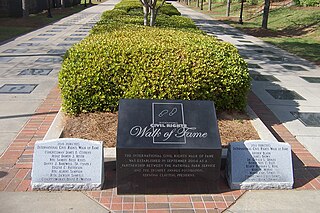 W
WThe International Civil Rights Walk of Fame, which honors some of the activists involved in the Civil Rights Movement and others involved in civil rights activities, was created in 2004 and is located at the Martin Luther King Jr. National Historic Site in Atlanta. It consists of a promenade that showcases the footstep impressions of those honored, marked in granite and bronze. According to the National Park Service, which runs the historic site, the Walk of Fame was created "to give recognition to those courageous soldiers of justice who sacrificed and struggled to make equality a reality for all." Another motivation was to enhance the historic value of the area, enrich its cultural heritage, and make the site a better tourist attraction.
 W
WGirls of Enghelab Street was a series of protests against compulsory hijab in Iran. The protests were inspired by Vida Movahed, an Iranian woman known as the Girl of Enghelab Street, who stood in the crowd on a utility box in the Enghelab Street of Tehran on 27 December 2017, tied her hijab, a white headscarf, to a stick, and waved it to the crowd as a flag. She was arrested on that day and was released temporary on bail a month later, on 28 January 2018. Some people believe that Movahed's action was based on Masih Alinejad's call for White Wednesdays, a protest movement that the presenter at VOA Persian Television started in early 2017. Other women later re-enacted her protest and posted photos of their actions on social media. These women are described as the "Girls of Enghelab Street" and "The Girls Of Revolution Street" in English sources. Some of the protesters claim that they didn't follow Masih Alinejad's call.
 W
WJohn Edward Jacob is a U.S. civil rights leader. He served as the president of the National Urban League between 1982 and 1994.
 W
WJointly presented by the Southern Regional Council and the University of Georgia Libraries, the Lillian Smith Book Awards honor those authors who, through their outstanding writing about the American South, carry on Smith's legacy of elucidating the condition of racial and social inequity and proposing a vision of justice and human understanding.
 W
WThe Massachusetts Body of Liberties was the first legal code established in New England, compiled by Puritan minister Nathaniel Ward. The laws were established by the Massachusetts General Court in 1641. The Body of Liberties begins by establishing the exclusive right of the General Court to legislate and dictate the "Countenance of Authority".
 W
WThe militarization of police is the use of military equipment and tactics by law enforcement officers. This includes the use of armored personnel carriers (APCs), assault rifles, submachine guns, flashbang grenades, grenade launchers, sniper rifles, and SWAT teams. The militarization of law enforcement is also associated with intelligence agency–style information gathering aimed at the public and political activists and with a more aggressive style of law enforcement. Criminal justice professor Peter Kraska has defined militarization of police as "the process whereby civilian police increasingly draw from, and pattern themselves around, the tenets of militarism and the military model".
 W
WParticipatory justice, broadly speaking, refers to the direct participation of those affected most by a particular decision, in the decision-making process itself: this could refer to decisions made in a court of law or by policymakers. Popular participation has been called "the ethical seal of a democratic society" by Friedhelm Hengsbach, a professor of Christian Social Science and Economic and Social Ethics at the Philosophical-Theological College Sankt Georgen in Frankfurt and "the politics of the future" by Gene Stephens, professor of criminology at the University of South Carolina. It is about people and relationships.
 W
WAlix Pasquet was a World War II fighter pilot, one of only five Haitian members of the Tuskegee Airmen, a soccer star, and a political revolutionary. He was killed while leading a coup attempt against Haitian President François Duvalier in 1958.
 W
WThe Red Power movement was a social movement led by Native American youth to demand self-determination for Native Americans in the United States. Organizations that were part of Red Power Movement included American Indian Movement (AIM) and National Indian Youth Council (NIYC). This movement sought the rights for Native Americans to make policies and programs for themselves while maintaining and controlling their own land and resources. The Red Power movement took a confrontational and civil disobedience approach to inciting change in United States to Native American affairs compared to using negotiations and settlements, which national Native American groups such as National Congress of American Indians had before. Red Power centered around mass action, militant action, and unified action.
 W
WIn the United States, redlining was the systematic denial of various services to residents of specific, often racially associated, neighborhoods or communities, either explicitly or through the selective raising of prices. While the best known examples of redlining have involved denial of financial services such as banking or insurance, other services such as health care or even supermarkets have been denied to residents. In the case of retail businesses like supermarkets, purposely locating stores impractically far away from targeted residents resulted in a redlining effect.
 W
WThe right to keep and bear arms is a right for people to possess weapons (arms) for the preservation of life, liberty, and property. Only a few countries recognize an individual right to keep and bear arms and protect it constitutionally, with more classifying it as a statutory privilege granted to some segment of the population.
 W
WScott Sunken Garden is a historical landmark in Lansing, Michigan, United States of America.
 W
WThe temperance movement is a social movement against the consumption of alcoholic beverages. Participants in the movement typically criticize alcohol intoxication or promote complete abstinence from alcohol (teetotalism), and its leaders emphasize alcohol's negative effects on people's health, personalities and family lives. Typically the movement promotes alcohol education and it also demands the passage of new laws against the sale of alcohol, either regulations on the availability of alcohol, or the complete prohibition of it. During the 19th and early 20th centuries, the temperance movement became prominent in many countries, particularly in English-speaking and Scandinavian ones, and it eventually led to national prohibitions in Canada, in Norway and in the United States, as well as provincial prohibition in India. A number of temperance organizations exist that promote temperance and teetotalism as a virtue.
 W
WTopfreedom is a cultural and political movement seeking changes in laws to allow women to be topless in public places where men are permitted to be barechested, as a form of gender equality. Specifically, the movement seeks the repeal or overturning of laws which restrict a woman's right not to have her chest covered at all times in public.
 W
WWoodhull Freedom Foundation, previously known as Woodhull Sexual Freedom Alliance, is an American non-profit organization founded in 2003 that advocates for sexual freedom as a fundamental human right. The organization is based in Washington, D.C., United States. Named after an influential member of the American woman's suffrage movement, Victoria Woodhull, its focus includes analyzing groups and individuals that seek to perpetuate a culture of sexual repression.
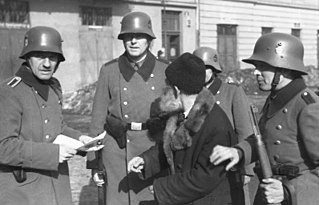 W
W"Your papers, please" is an expression or trope associated with police state functionaries demanding identification from citizens during random stops or at checkpoints. It is a cultural metaphor for life in a police state.